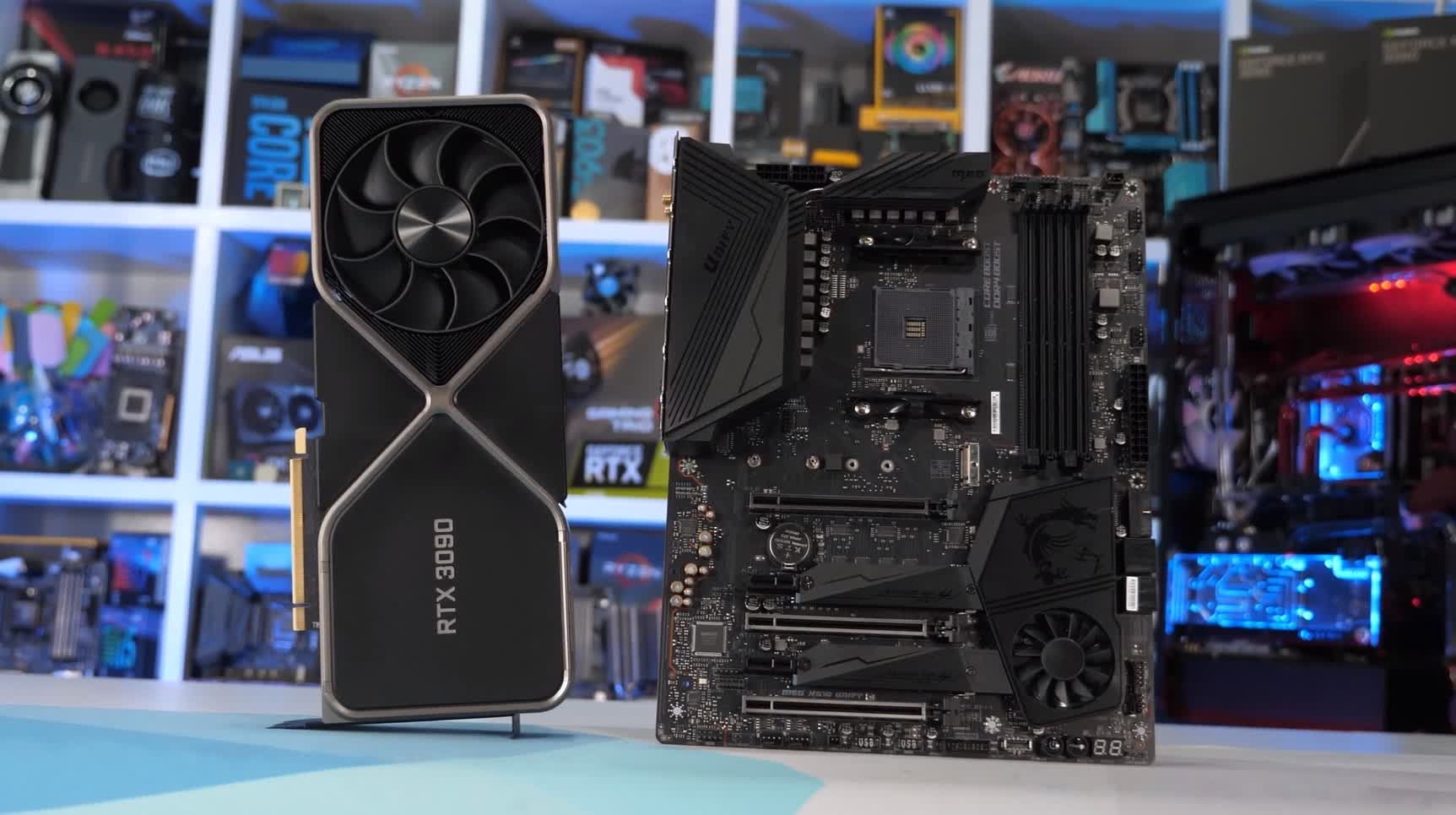Rumor mill: As if the hefty power draw figures of next-generation graphics cards weren't enough, a recent round of leaks are suggesting that an RTX 3090 Super is on the way to usher in the age of the 400W+ single-GPU graphics card even sooner.
The refreshed Super line of Nvidia's Turing graphics cards last generation brought with them substantial jumps in TGP, and it seems that the possible GeForce RTX 3090 Super is no different. In fact, given the very modest increase in core count – just 256 more CUDA cores than the 3090, a 2.4% bump – it seems like most of its performance increases will come from simply ramping up the power draw.
400W+
--- Greymon55 (@greymon55) August 25, 2021
A day after Greymon put out the existence of a refresh, as well as its power draw and core count, kopite7kimi shed more light on the possible specs of the GPU.
Particularly of note is the alleged use of 21 Gbps VRAM, the maximum module speeds offered by Micron. Even though GDDR6X currently only runs at 19.5 Gbps in the RTX 3090 (and 19 Gbps in the 3080 and 3070 Ti), it already uses substantial amounts of power and faces serious thermal issues in those cards, so it's likely to be a key contributor to the 3090 Super's inflated TGP, as well as needing some engineering work from Nvidia and its partners to get right.
Maybe,
--- kopite7kimi (@kopite7kimi) August 26, 2021
RTX 3090 Super
"GA102-350-A1
10752FP32, no NVLINK
Original 21Gbps MEM
TGP>=450W"
Launch in 2021.
🤫🤫🤫
If the GPU sits at or over 450W, as kopite suggests, it would end up having to use three 8-pin power connectors in order to meet its power requirements, even discounting partner cards with more ambitious power targets.
Furthermore, if the 3090 Super lacks NVLink – as the 3080 Ti already does – that could be another nail in the coffin for consumer uses of the GPU interconnect, which only took over from the venerable SLI technology with Turing.
In any case, both leakers claim that the GPU will launch within the remainder of 2021, making them likely to clash with Intel's Arc or even beat it to the punch. However, as the blue team's graphics cards are aimed at a lower performance class, and will doubtlessly be priced lower than the stratospheric RTX 3090, the two are unlikely to come into significant competition.
